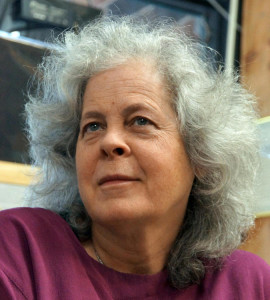7849 Rulemaking — deja vu all over again
July 12th, 2013
This post is dedicated to Kristen Eide-Tollefson, a fierce advocate for public participation who likely strikes terror into the heart of every bureaucrat trying to keep the public out.
To have come full circle again, AGAIN, with the same old arguments from utilities and agencies charged with protecting the ratepayers, public interest, and environment, it’s getting old… as I am… and tired of spending so much time countering utility self-interest and agency pandering trying to preserve a modicum of equity in review of their proposals.
 Photo from Daily Planet: Save Dinkytown effort escalates in Minneapolis as Book House and the Podium get ready to say goodbye
Photo from Daily Planet: Save Dinkytown effort escalates in Minneapolis as Book House and the Podium get ready to say goodbye
Having been through Minnesota’s statutory changes to the Power Plant Siting Act, and the subsequent rulemaking, remember, this was after NSP’s legislatively mandated attempt to site nuclear waste in Florence Township and post Arrowhead-Weston and Chisago Transmission Project in an effort to keep that sort of mess from happening again, I’m more than a little skeptical of the agency (arm of the executive, don’t forget) and utility agendas. Add to it the inexplicable draft proposals from Office of Administrative Hearings on the 1400-1405 rules used in utility and other contested case proceedings (oh, and I guess I’d better check to see what they did to rulemaking!?!), it’s a big job to think up the dreadful scenarios that could result from their proposals and try to prevent it.
So there I am, cleaning out the office in one house, trying to separate the wheat from the diamonds, and I found this gem:
This was an email sent March 16, 2001, over 12 years ago…
Experience shows that when timelines or processes are foreshortened, or need review &/or siting processes are circumvented, the public grows reactive. Persistent attempts to evade full review by state and public bodies create increased, and increasingly organized resistance, to utility strategies. To attempt to “streamline” or proceed with projects without due public process invites only grassroots revolt & lawsuits. Such “streamlining” may give one side or another momentary advantage (maybe just enough to get those bulk power transmission projects into place), but it will not bring the two “sides” into better working relationship.
The public rarely goes into a siting or routing situation distrusting the utility. Controversy is created time and time again by the utility itself in”
1) the disregard applications show for the qualities and values of the communities; and
2) inadequate information given to the public; and
3) lack of candor/disclosure of the real purposes or goals of a project.
Deja vu all over again… The public has spoken, over and over and over and over and over and over, in the individual project dockets and for close to two decades at the Power Plant Siting Act Annual Hearing. Back to Kristen’s missive:
Among other things, the public advised:
1) more careful screening of applications up front.
2) reviving the ongoing public advisory task force; and
3) reactivating the “planning” component with public participation in standards and criteria development (Minn. Stat. 116C.55, since deleted). To be involved with planning features up front could alleviate tensions and create more mutual accountability among all parties; and
4) greater consideration of resource discrepancies between proposers and affected public/communities.
As proof of the continuity of public response, we found in reviewing the record of the power plant siting advisory committees from the early 80s that our advisories, almost 20 years later, differed very little from theirs.
Let’s make it 30 years now… Yet what we’ve seen since these words were written in 2001 is something else entirely, for example, the removal of planning from the state, to MAPP in St. Paul, to MISO in Indiana, further away from the project area, and further away from the people, geographically and in our ability to participate. Planning has become more and more remote. Citizens complaining are told to participate at MISO — right, yeah sure, as if any participation there has any impact:
Back to Kristen’s missive:
From a public perspective, these two values are primary. Private utility investments, fair profits and returns are part of the equation. But infrastructure development for distant industrial markets for competitive advantage of private corporate interests is another matter. The development of this competitive infrastructure depends above all else, according to the January issue of Electricity Journal, upon transmission. This is the line that the public has drawn.
We do not want our lands, air and waters to become a generating and transmission ‘factory’ for industrial centers. We do not want our affordable energy to be traded, sold or transferred to other states, and to be blamed for ‘reliability’ problems when it is.
To fail to provide due process for the analysis of the implications and impacts of such proposals is to fail the public purpose of law and policy. Please consider these implications in all of your deliberations.
Hear that, Public Utilities Commission?
Leave a Reply